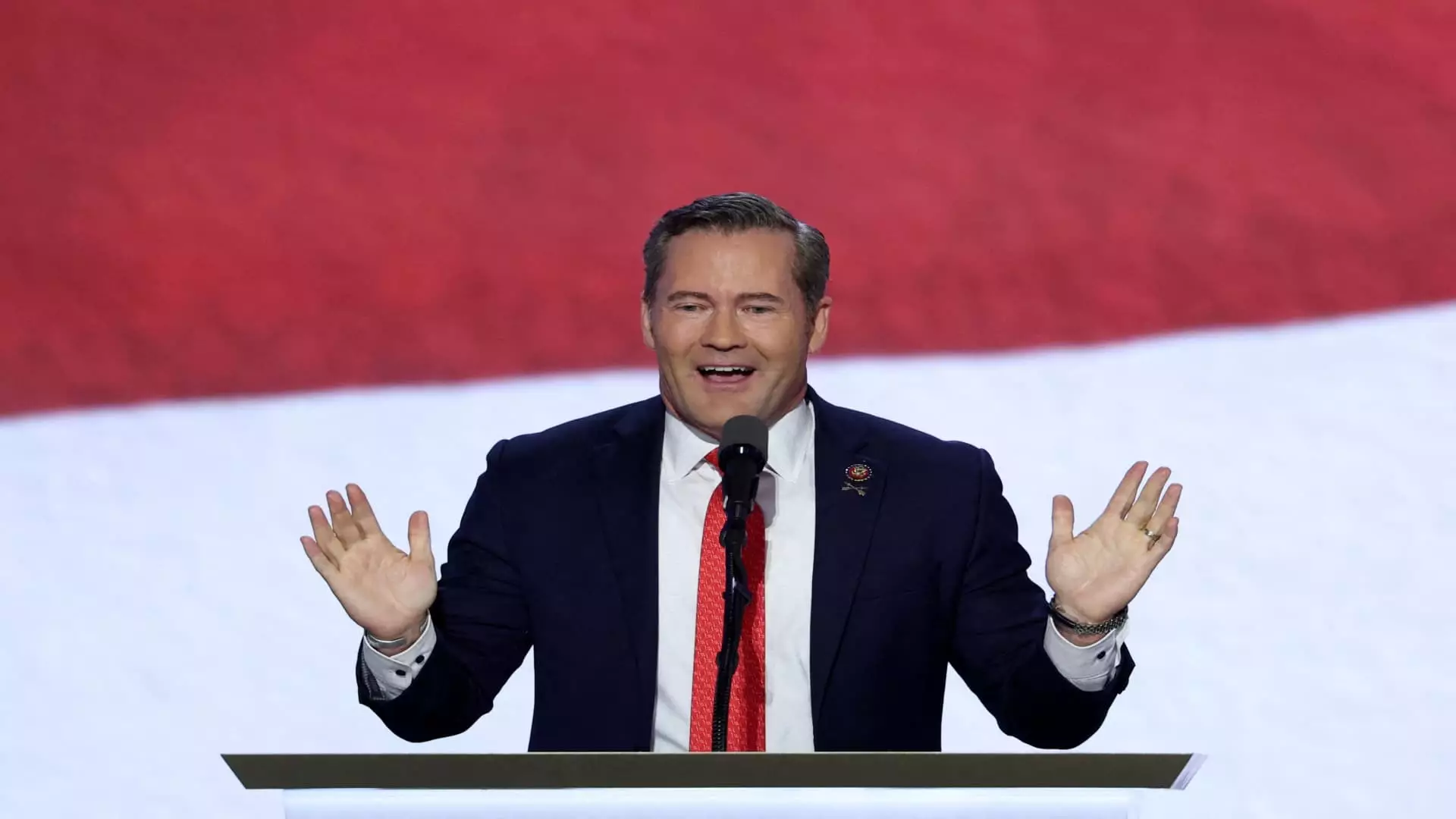In a significant move signaling his administration’s foreign policy direction, President-Elect Donald Trump has appointed Rep. Mike Waltz from Florida as his national security adviser. With a rich background as a Green Beret and experience spanning combat deployments in Afghanistan, the Middle East, and Africa, Waltz brings a military perspective that could shape U.S. security policy in pivotal ways. Since 2019, he has represented a Florida congressional district and is actively involved in multiple influential committees, including Armed Services, Foreign Affairs, and Intelligence. This intimate involvement with defense and global affairs may position him as an essential asset in a potentially tumultuous geopolitical landscape.
Waltz’s strong advocacy, especially regarding issues related to China, marks him as one of Congress’s more hawkish figures. As a member of the House’s China Task Force, he has frequently expressed concern about the U.S.’s preparedness to handle a direct confrontation with China. This urgent viewpoint indicates that Waltz perceives an imminent threat, and his role could catalyze discussions on military readiness and strategic posturing in the Asia-Pacific region. His assertive stance suggests Trump may favor a foreign policy that leans heavily towards confrontation in what he perceives as a global chess game with China.
Beyond his views on China, Waltz has also voiced skepticism regarding U.S. aid to Ukraine in its ongoing conflict with Russia. He suggests that the U.S. should leverage its diplomatic and strategic strengths to bring Vladimir Putin to negotiations—adopting a conciliatory approach rather than unconditional support for Ukraine. This perspective raises eyebrows among both allies and adversaries, as it could shift the narrative on American foreign aid and influence involvement in international conflicts. By suggesting negotiations over direct military assistance, Waltz places emphasis on dialogue—a theme that could either enhance or complicate U.S. relations globally.
One notable aspect of Waltz’s appointment is that the national security adviser does not require Senate confirmation. This reality allows Trump to rapidly assemble a team aligned with his more combative foreign policy stance without the contentious approval process typical of other high-level appointments. The move also indicates a strategic approach in Trump’s administration, focusing on consolidating power in foreign affairs without legislative bottlenecks—potentially facilitating a more aggressive policy agenda.
As Waltz steps into this critical role, he joins a select group of influential figures, including Rep. Elise Stefanik, who has been appointed as U.S. ambassador to the United Nations. Together, they embody a new wave of Republican leadership geared toward restoring strength in national security discussions. However, amidst a rapidly changing global environment, Waltz’s hawkish tendencies could prompt challenges within both Congress and among international allies who may favor diplomacy over potential military escalation. The effectiveness of Waltz and Trump’s joint leadership will ultimately depend on their ability to navigate these complex waters in a manner that protects American interests while fostering global stability. The future is uncertain, but their strategies will undoubtedly influence the course of U.S. foreign policy in the years to come.


Leave a Reply